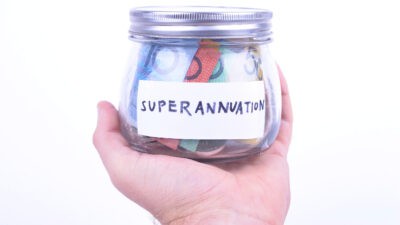
Image source: Getty Images
There has been plenty in the media lately about companies deemed to have profited from JobKeeper.
And it's easy talkback and tabloid fodder, not to mention great retail politics.
Here's how it works:
1. Company gets $X million in JobKeeper payments.
2. Company makes $Y million in profit.
3. Cue outrage
And it seems logical, right.
If a company made $10 million in profit, but got, say, $5 million in JobKeeper payments, isn't it logically true that half of the profit was funded by the taxpayer?
And shouldn't it be paid back?
(And, if you're a politician, shock jock or tabloid rabble-rouser, why would you bother thinking any more deeply on the topic?)
By the way, the answer to 'Isn't it logically inescapable that the taxpayer funded the profit?' is a resounding 'no'.
Or, more accurately, not necessarily.
But it takes a little thinking – something that, well, doesn't always get done in our social media and soundbite world.
First, remember that the money for JobKeeper might be paid to the company, but is passed through to the employee. So the company can't keep the cash and profit from it.
Ah, you say, but if they made a profit, they could have just paid the employees themselves.
Yep. They could have.
Except that, in some (many, perhaps most?) cases, they wouldn't have.
They would have laid the workers off (or significantly reduced their hours).
Sure, some wouldn't have. And yes, those companies likely did earn more profits than in a 'normal year'.
But many – again, perhaps most – would have sacked, laid off, or reduced hours, thereby preserving their profits; rather than keep a full complement of staff, and make a loss in doing so.
Which makes for a pretty tricky policy issue.
I am in complete agreement that taxpayers money shouldn't be used for corporate welfare (of more sorts than just JobKeeper, by the way).
But if we can't know, in advance, which employees would have been kept on, and which let go, how do you otherwise design a program that protects jobs – the very aim of JobKeeper.
You could ask those companies whether they intended to lay off workers, I guess. And one or two might even be honest. The rest would either be blatantly dishonest, or – more likely – would have honestly said "We don't know, because we don't know how bad things will get".
And yes, if we'd had 12 months to debate the merits of a scheme designed to keep the maximum number of jobs through an unexpected pandemic, it's even possible other checks and balances might have been introduced.
But the government was scrambling, and, frankly, came up with a scheme that was astonishingly successful – and our fast return from recession to growth is evidence of same.
(For the record, we can never distinguish entirely between causation and correlation. We can't know how deep the recession would have been without JobKeeper, nor how slow the recovery might have been. But it's a fair bet that JobKeeper was instrumental in shortening the recession and moderating its depth.)
Should we 'claw back' JobKeeper, then, if companies made a profit?
I mean, we could, but remember that companies entered the scheme in good faith, and to retrospectively demand repayment would be to undermine the effectiveness of a similar scheme in future.
Companies will ask themselves: "If we have to pay this back, would we be better off just sacking workers now, and maximising profits, rather than having to roll the dice on some future clawback of JobKeeper?".
Because, remember, this was all about maximising employment and minimising unemployment.
It was always a 'least worst' option, costing scores of billions, designed to be such a no-brainer that it kept people in work and – and remember this bit – allowing them to make mortgage and other loan repayments, to continue consuming, and to keeping other businesses afloat… which meant more jobs saved.
The economy is always circular – a virtuous circle when growth begets growth, but a vicious circle when decline causes further decline.
So, we can say that companies shouldn't have received the money, if they were going to make a profit anyway… but we have to remember that – given managers are responsible for maximising profits one way or the other – the cost might have come in the form of huge job losses, and the resultant worsening of economic conditions and the lengthening of a recession.
Yes, paying taxpayer money to profitable companies sticks in the craw. But it might just have been the least worst of the available options.
We truly need to be careful what we wish for.








